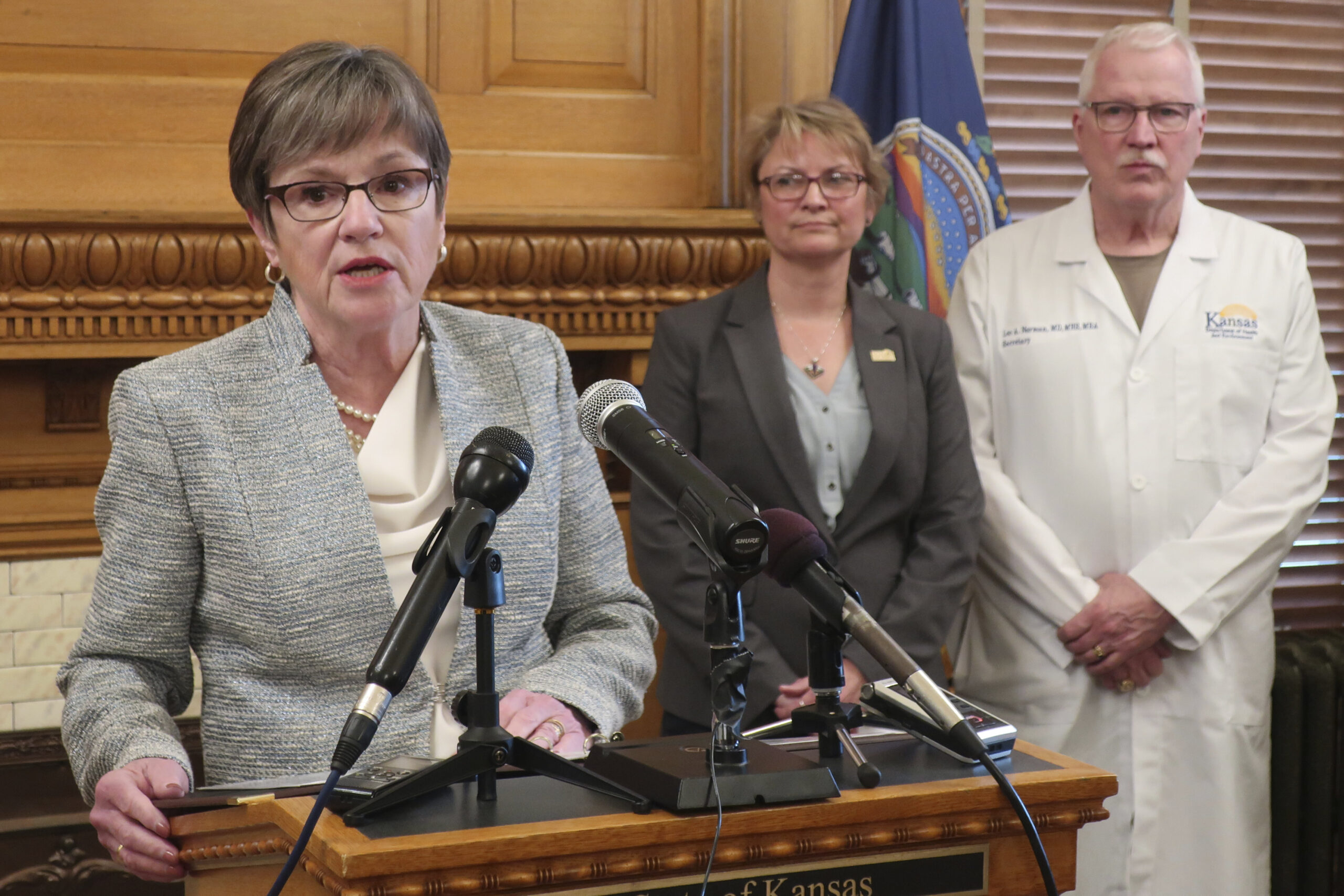Kansas Attorney General Derek Schmidt — who is running for Kansas Governor — has proposed allowing Kansas residents to “retire tax-free” by eliminating the state income tax on retirement benefits and savings.
“The Schmidt-Sawyer administration is going to focus every single day on growing Kansas, and if we’re going to do that we can’t keep losing retirees at such a high rate to other, more tax-friendly states,” Schmidt said. “To every retiree considering leaving Kansas after a lifetime of working and living here, we want you to stay. To every retiree in another state looking to move, come to Kansas. We’re going to give you another reason to remain or return to Kansas by helping you retire tax-free.”
It’s an idea Republican legislators are applauding.
Kansas State Rep. Adam Smith, (R-Weskan), who is the chair of the Kansas House Taxation Committee said this is something the legislature has wanted to do for a while.
“Income tax on retirement benefits and social security has been on the legislature’s radar and Attorney General Schmidt is spot-on for identifying it as a priority,” Smith said. “Our current tax policy continues to rank as one of the worst in the nation for retirees, and it’s time we remove the disparity and treat our seniors fairly.”
Sen. Caryn Tyson, (R-Parker), the chair of the Kansas Senate Assessment and Taxation Committee, agreed.
“This is something we have fought for and passed a couple of times in the Senate,” she said. “I’m excited to see AG Schmidt take the lead on this issue. Kansans need true tax relief, and removing the income tax on retiree income will help Kansans and the state’s economy.
“This is something we have fought for and passed a couple of times in the Senate. I’m excited to see AG Schmidt take the lead on this issue. Kansans need true tax relief, and removing the income tax on retiree income will help Kansans and the state’s economy.”
Kansas has ranked poorly for retirement for years
For several years now, Kansas has ranked poorly for retirees according to Kiplinger’s annual report.
The state ranked the third-worst state in 2019, fourth-worst in 2021, and third-worst again this year.
Kansas lost 185,000 people to domestic migration between 2000 and 2021, and departing retirees are a major cause of that outmigration. Nationwide, retirement is the third-most-common reason for moving away from a state, and that trend is accelerating. Kansans are increasingly likely to leave at retirement – taking a lifetime of accumulated talent and wealth with them.
Kansas tax burden is a major reason for retirees leaving
Kansas currently taxes all private retirement benefits and retirement savings distributions subject to federal income tax. Kansas also taxes Social Security benefits of taxpayers earning $75,000 or more. Military pensions, federal employee pensions, and state and local government employees’ KPERS pensions are exempt from state income tax.
Kansas is the third-worst state for retirees because of the combined burden of high income, sales, and property taxes. Kansas is one of only 13 states that do not fully exempt Social Security retirement benefits from state income tax.
All a key reason why Kansas was one of only 18 states that lost population in 2021, and current Governor Laura Kelly’s Tax Council has proposed increasing income taxes on individuals who earn more than $50,000 per year.
Nationwide, 12 states do not tax retirement income and Iowa is set to join them. In our region, Kansas would join South Dakota, Texas, and most recently Iowa in exempting all private retirement income from taxation. Kansas would join six other regional states in exempting all Social Security income from taxation.
Schmidt’s proposal would zero out all state income tax on Social Security retirement benefits, out-of-state public pensions, private pension benefits, defined benefit retirement plans, defined contribution retirement plans like 401(k)s, retirement annuities, individual retirement accounts, retirement plans maintained or contributed to by an employer, or maintained or contributed to by a self-employed person as an employer, and deferred compensation retirement plans or any earnings attributable to the deferred compensation plans.
Smith said he hopes to have legislation ready to go when the 2023 session starts.
“The House and Senate joint tax interim committee placed the study of elimination or phased-out elimination of income tax on social security and retirement benefits at the top of our list back in May because we want to have a proposal ready to go when the legislative session starts next year,” he said. “While legislation has been introduced in previous sessions, I believe a phase-out approach is the most fiscally responsible due to the large impact it could have on state revenue … similar to our approach this year with phasing out the food sales tax.”



